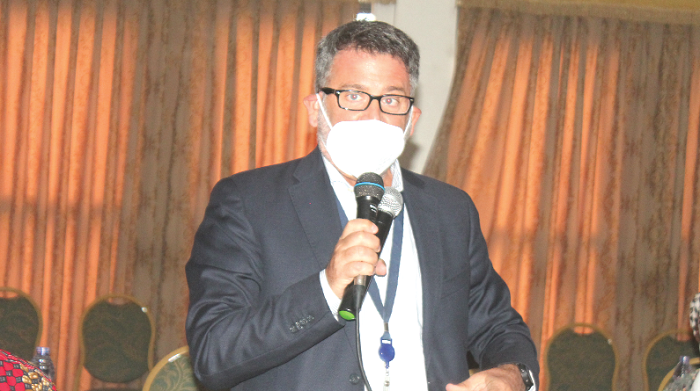
Accra economy resilient despite COVID-19 - Research finding
A new study has found the economy of Accra to have showed strong resilience in the local financial market environment, local economic governance, and basic service infrastructure and connectivity in the midst of COVID-19.
It, however, found some weaknesses, which included poor local productivity of businesses, weak financial intermediation and poor social protections programmes, especially in the informal sector.
The findings of the study were presented at a workshop aimed at informing stakeholders about key findings of a Post COVID-19 Economic Recovery and Resilience Plan (ERRP) for Accra.
The project, dubbed DA13, was conceived by the United Nations (UN) as part of a broader initiative to support the economic recovery of local governments across the world.
The two-day workshop — organised by the Accra Metropolitan Assembly (AMA) and the United Nations Economic Commission for Africa (UNECA) — was also to allow for deliberation on policy interventions and implementation pathways to help in the preparation of the local ERRP for Accra.
Participants who attended the workshop included representatives from governmental institutions, local economic experts and key city authority focal persons.
Findings
A local consultant for UNECA, Mr Kenneth Owusu, who presented the findings, said some recommendations made for the business environment included linking the informal sector to the formal sector, and improving access to affordable financing.
He said for the labour market, there was the need to strengthen social protection, facilitate enrolment on social protection programmes, and facilitate enrolments on informal sector pension schemes, among others.
“For the resilience of the financial system, there is the need to improve financial literacy, and introduce modern approaches to enhance internal revenue mobilisation capacity,” he said.
He called for enhanced engagement with key stakeholders to ensure accountability in development planning, and also for continual improvement of basic infrastructure in the city.
Government intervention
In a speech read on his behalf, the Minister of Finance, Mr Ken Ofori-Atta, said a 2021 Diagnostic Report on AMA's Economic and Financial Resilience Performance indicated that the local business environment was still plagued with low economic productivity and weak access to financing.
He said the Ghana CARES Programme presented a unique opportunity to consolidate the resilience of Accra's financial sector and economy.
He said the programme was initiated to improve the government’s economic development, and to foster a quicker recovery and boost the country’s post-COVID economic transformation.
Mr Ofori-Atta said the government was also in the process of establishing a National Unemployment Insurance Scheme to provide social protection in the form of temporary income support to workers who must have lost their jobs.
He urged the public to support the implementation of the Ghana CARES Programme to transform Accra into a resilient economic and financial hub.
Partnership
The Chief Executive of the AMA, Mr Mohammed Nii Adjei Sowah, said the partnership with UNECA was aimed at conducting detailed research into the impact of COVID-19 on the economies of local government authorities.
He, therefore, urged the various assemblies and the Greater Accra Regional Coordinating Council to take interest in the findings of the report, particularly as they prepared their respective Medium-Term Development Plans for 2022 to 2025.
